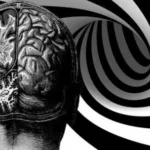
In our contemporary society, mental disorders such as schizophrenia continue to be the subject of stigmatization and misunderstanding, despite the fact that mental health and its dissemination have recently been put on everyone’s lips. Among the many myths surrounding this complex and painful condition, one of the damaging ones is the mistaken belief that people with schizophrenia are inherently aggressive or violent.
This stigma, embedded in popular culture and the media, has generated fear, discrimination and exclusion for people living with mental illness. In this era of rapid information and global communication, it is essential to address these myths and prejudices comprehensively. By doing so, we can challenge these types of misperceptions and foster greater understanding and empathy towards people with schizophrenia.
It is very common to hear about mental health and psychological abilities that are easy to understand among the population that does not live with mental illness. However, it is important to shed light on the realities of people who live with this type of mental illness, who generally do not see themselves reflected in social and collective imaginaries and feel excluded mainly due to their condition. Throughout this article, we will demystify the false relationship between schizophrenia and aggression, breaking these associated myths and promoting more accurate and compassionate narratives about this mental illness. Through this exploration, we will be able to better understand the nature of the condition and how these types of stigmas have been perpetuated over time. Using scientific data, we will challenge the idea that people with this condition are inherently dangerous.
What is schizophrenia?
Schizophrenia is a complex mental disorder that affects the way a person thinks, feels and behaves. Contrary to popular belief, this is not a split or multiple personality, as is often misunderstood. Rather, it is characterized by a combination of symptoms that may include hallucinations, delusions, disorganized thinking, decreased emotional expression, and cognitive difficulties. These symptoms usually manifest in adolescence or early adulthood and can vary in intensity and duration.
One of the most challenging aspects of schizophrenia is its symptom diversity. There is no single pattern of symptoms that defines the condition, making both its diagnosis and treatment difficult. Some people experience visual or auditory hallucinations, such as hearing voices or seeing things that are not present. Others may have delusions, false or irrational beliefs that do not align with reality. Disorganized thinking can manifest in incoherent speech or erratic behavior, making communication and social interaction difficult.
It is important to note that schizophrenia is not a rare disease. According to the World Health Organization (WHO), it affects approximately 1% of the world’s population and is among the leading causes of disability worldwide. Additionally, schizophrenia does not discriminate based on age, gender, or ethnicity, although symptoms typically manifest in young men at a slightly earlier age than in women.
Despite advances in the understanding and treatment of schizophrenia, many stigmas and misunderstandings surrounding the condition persist. Lack of education and negative representation in the media contribute to perpetuating harmful myths about people living with schizophrenia. It is essential to address these misperceptions and promote greater understanding and empathy towards those facing this mental illness.
Stigmas linked to schizophrenia
The stigma surrounding schizophrenia is a serious problem that deeply affects people living with this condition. Stigma can be defined as a set of negative beliefs and prejudices that lead to discrimination and rejection of those who are perceived as different due to their mental health condition. In the case of schizophrenia, these stigmas can be especially harmful due to the persistent and erroneous association between the illness and violence.
One of the fundamental reasons behind the stigma associated with schizophrenia is the lack of understanding and education about the disease. Negative stereotypes spread by the media and popular culture have contributed to the misperception that people with schizophrenia are unpredictable, dangerous or violent. These inaccurate representations are not only unfair, but they also perpetuate fear and discrimination towards those living with the disease.
Stigmatization can have serious consequences for the mental health and well-being of people with schizophrenia. Fear of social rejection can lead to isolation and concealment of the condition, which in turn makes it difficult to access necessary medical care and support. Furthermore, the internalization of stigma can generate feelings of shame and self-stigma, which negatively affects the self-esteem and quality of life of those living with the disease.
Discrimination based on schizophrenia can also manifest itself in areas such as employment, housing, and access to mental health services. People with schizophrenia may face significant barriers to finding work or maintaining healthy interpersonal relationships due to stigmatization and lack of understanding of their condition. This can lead to a cycle of exclusion and marginalization that further exacerbates mental health problems and undermines the recovery and well-being of those living with the illness.
It is essential to address the stigma associated with schizophrenia through education, raising awareness and promoting understanding and empathy. By challenging stereotypes and misperceptions, we can create a more compassionate and supportive environment for all people, regardless of their mental health condition.
Ending the myth of aggression
One of the most persistent and damaging beliefs about schizophrenia is the association with aggression and violence. However, numerous studies and data show that this perception is incorrect and that the vast majority of people with schizophrenia are not violent. Debunking this myth is crucial to combating stigma and promoting a more accurate understanding of mental illness.
Scientific research has consistently revealed that People with schizophrenia do not have an intrinsic tendency towards violence. In fact, most individuals diagnosed with this condition are much more likely to be victims of violence than perpetrators. Epidemiological studies have shown that the risk of violent behavior in people with schizophrenia is relatively low and that most cases of violence in this population are related to factors such as substance abuse, lack of adequate treatment or the presence of other disorders. concurrent mental
It is important to recognize that violence associated with schizophrenia is atypical and does not represent the experience of the majority of people living with the condition. People with schizophrenia are much more likely to be mistreated, harassed or discriminated against than to be aggressive towards others. Most individuals with schizophrenia are peaceful and do not pose a risk to public safety.
It is crucial to understand that aggression in people with schizophrenia is generally linked to specific and preventable circumstances. Lack of access to appropriate medical care, lack of social support, and stigmatization can contribute to crisis situations that increase the risk of violent behavior. Therefore, addressing these underlying factors and providing appropriate mental health interventions are key components to preventing violence and promoting recovery in people with schizophrenia.
The stigma around schizophrenia and violence is not only unfair, but also has negative consequences for those living with the condition. Stigmatization can make it difficult to seek help and support, exacerbating mental health problems and undermining recovery. By challenging myths about aggression and schizophrenia, we can create a more compassionate and supportive environment that promotes the inclusion and well-being of all people, regardless of their mental health status.
In summary, it is crucial to demystify the association between schizophrenia and aggression to combat stigma and promote greater understanding of mental illness. Scientific evidence refutes the idea that people with schizophrenia are inherently violent, and it is essential to promote this reality to build a more inclusive and compassionate society.
Conclusions
In conclusion, demystifying the association between schizophrenia and aggression is crucial to eradicating stigma. Most people with schizophrenia are not violent; This stigma harms their quality of life and access to health care. Combating stigma requires education, raising awareness and promoting understanding. By challenging stereotypes, we can build a more inclusive and supportive society for all people, regardless of their mental health. It is essential to promote a paradigm shift that fosters empathy and understanding towards those living with schizophrenia, thus breaking stigma and building a more compassionate world.








